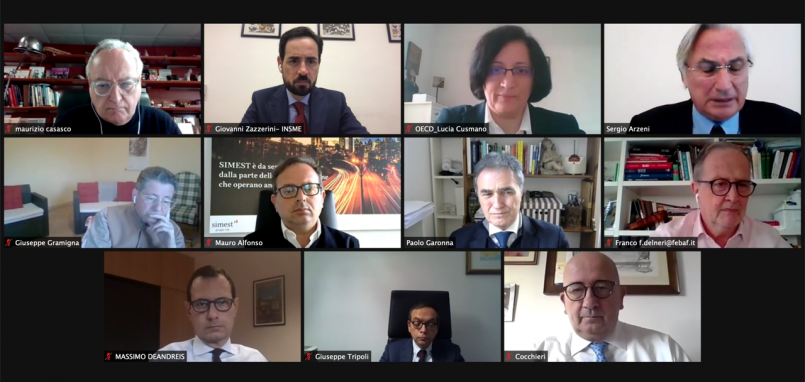In a high-level meeting, held on Friday the 26th of February, Italian INSME members CONFAPI, SIMEST, SRM and Unioncamere, together with representatives from the OECD, FEBAF and other prominent organisations, discussed “How to save ‘good’ SMEs from the crisis?”. The discussion, based on the report published by the Group of Thirty “Reviving and Restructuring the Corporate Sector Post-Covid”, revolved around three main questions:
- Which tool could best identify SMEs with sound fundamentals which must be helped?
- What role can SME associations and Chambers of Commerce play?
- What methods can be used to convert debt into equity or quasi-equity?
Among others, here are some of the interesting points which emerged. Mauro Alfonso, SIMEST CEO, pointed out that the parameters for identifying performing SMEs should be based on the company’s ability to shift towards sustainability and digitalisation. Giuseppe Tripoli, Unioncamere Secretary General, stressed the need for an adequate support structure SMEs, without which even well-designed measures will not reach SMEs. He continued by identifying chambers of commerce as the ideal organisations for said role, following the example of the Small Business Administration. Maurizio Casasco, CONFAPI President, highlighted the importance of human capital and adequate managerial skills necessary for the survival of SMEs, while warning how banks, despite having expertise, may not be the ideal subjects for choosing which SMEs to save, as not only they use different and independent evaluation parameters in providing economic support, but they also pursue different goals compared to the government.
Arguing from a different perspective, Massimo Deandreis, SR-M Director from Intesa Sanpaolo, suggests not only identifying which SMEs to save, but also which sectors are the ones that have performed better during the crisis, and, on the topic of who should choose which SMEs to save, stresses the importance of the role banks play, as they possess both an all-round vision of SMEs which they can pass on to these and have all the interest to avoid the insurgence of non-performing loans.
In conclusion, it is clear most believe policymakers must tread lightly going ahead. In the words of Lucia Cusmano, from the OECD “[…] the figures speak for themselves, SMEs have been, without a doubt, the most affected by the pandemic and its restriction. In order to recover, the State should offer alternative financing methods other than credit to avoid the prospect of higher rates of insolvency and a support system capable of providing a prompt financial aid.”
Source: INSME Secretariat


